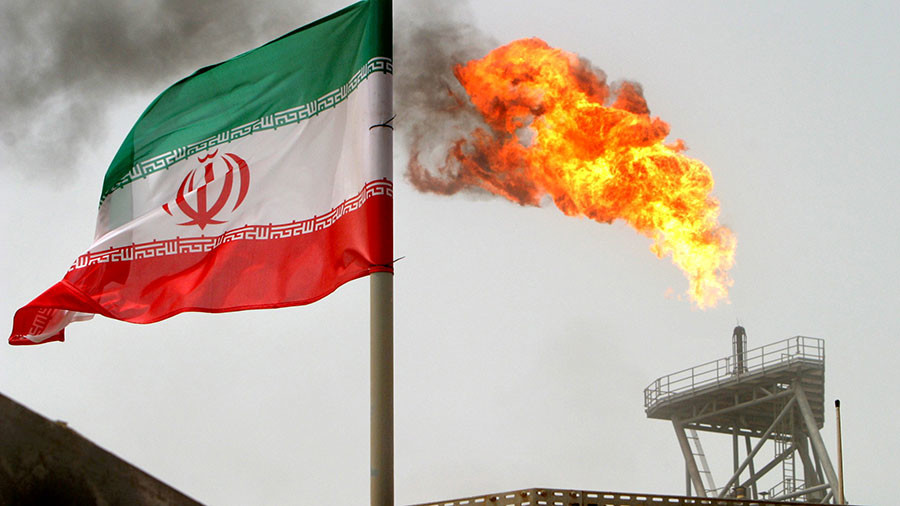‘Strongest sanctions in history’: Pompeo issues 12 demands to Iran, vows ‘unprecedented pressure’

Tehran will struggle to “keep its economy alive” if it does not comply with a list of 12 US demands, including Iranian withdrawal from Syria, Secretary of State Mike Pompeo vowed on Monday.
Speaking at the Heritage Foundation, a right-wing Washington think tank, Pompeo laid out a list of 12 “basic requirements”for Iran. The demands call on Iran to withdraw from Syria, "release all US citizens," end support for Houthi rebels in Yemen, stop “enrichment" of uranium, and promise never to process plutonium. Iran must also allow "unqualified access to all nuclear sites throughout the country," Pompeo said.
He promised that the US would impose the "strongest sanctions in history" if Iran failed to comply with these demands.
Pompeo said that “the sting of sanctions will be painful” and Iran will struggle to “keep its economy alive” if Tehran “does not change its course from the unacceptable and unproductive path it has chosen.”
“Thanks to our colleagues at the Department of Treasury, sanctions are going back in full effect and new ones are coming … These will indeed end up being the strongest sanctions in history,” Pompeo said.
The secretary of state also pledged that the US "will track down Iranian operatives and their Hezbollah proxies operating around the world, and we will crush them. Iran will never again have carte blanche to dominate the Middle East."
Speaking directly to the Iranian people, Pompeo claimed that “President [Hassan] Rouhani and Foreign Minister [Javad] Zarif… are your elected leaders. Are they not the most responsible for your economic struggles?" He added: “The United States believes you deserve better.”
Pompeo also said he's sure that over time, Washington's allies will warm to the Trump administration's now unpopular stance on Iran.
Washington’s strategy is to weaken Iran economically, rather than engage in an actual war, Dr. Said Sadik, Professor of political sociology at the American university of Cairo, told RT in response to Pompeo’s address. “What the [US] is doing now is increase sanctions trying to undermine the power of Iran regionally, economically with the hope that that would lead to unrest and disturbances in Iran, that it would make the Iranian government stop trying to help its allies or extend its influence in the area. This is basically what they want.”
Sadik added: “I don’t think they want a war because war is very expensive and dangerous in this strategic area…What they want is to weaken Iran financially, economically, with the hope that the Iranian government will not be that powerful in the area as it is now.”
The speech comes after Trump announced earlier this month that he was pulling out of the 2015 nuclear deal. Europeans allies had pleaded with Trump not to withdraw from the historic accord, which put tight restrictions on Iran's nuclear program in exchange for sanctions relief. Iranian president Hassan Rouhani described the US pull-out from the deal as a "historic experience for Iran," adding that "by exiting the deal, America has officially undermined its commitment to an international treaty."
Iran says it expects the EU to continue to honor the agreement, despite Washington’s withdrawal from the accord. Inspections by the International Atomic Energy Agency (IAEA) have repeatedly confirmed that Iran is in full compliance with its obligations under the deal.


0 Comments:
Post a Comment
Subscribe to Post Comments [Atom]
<< Home